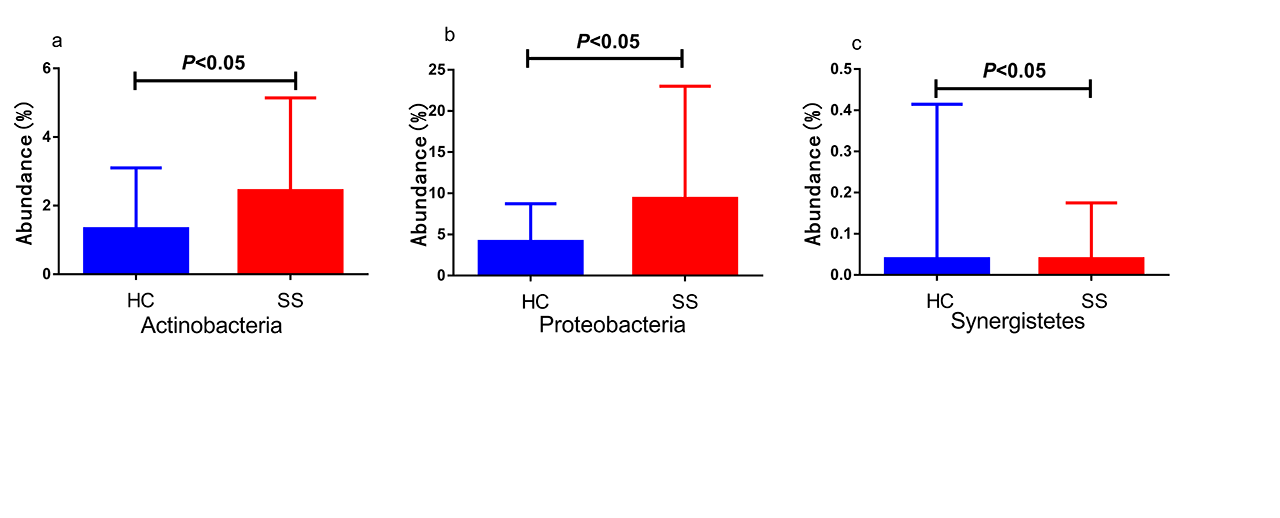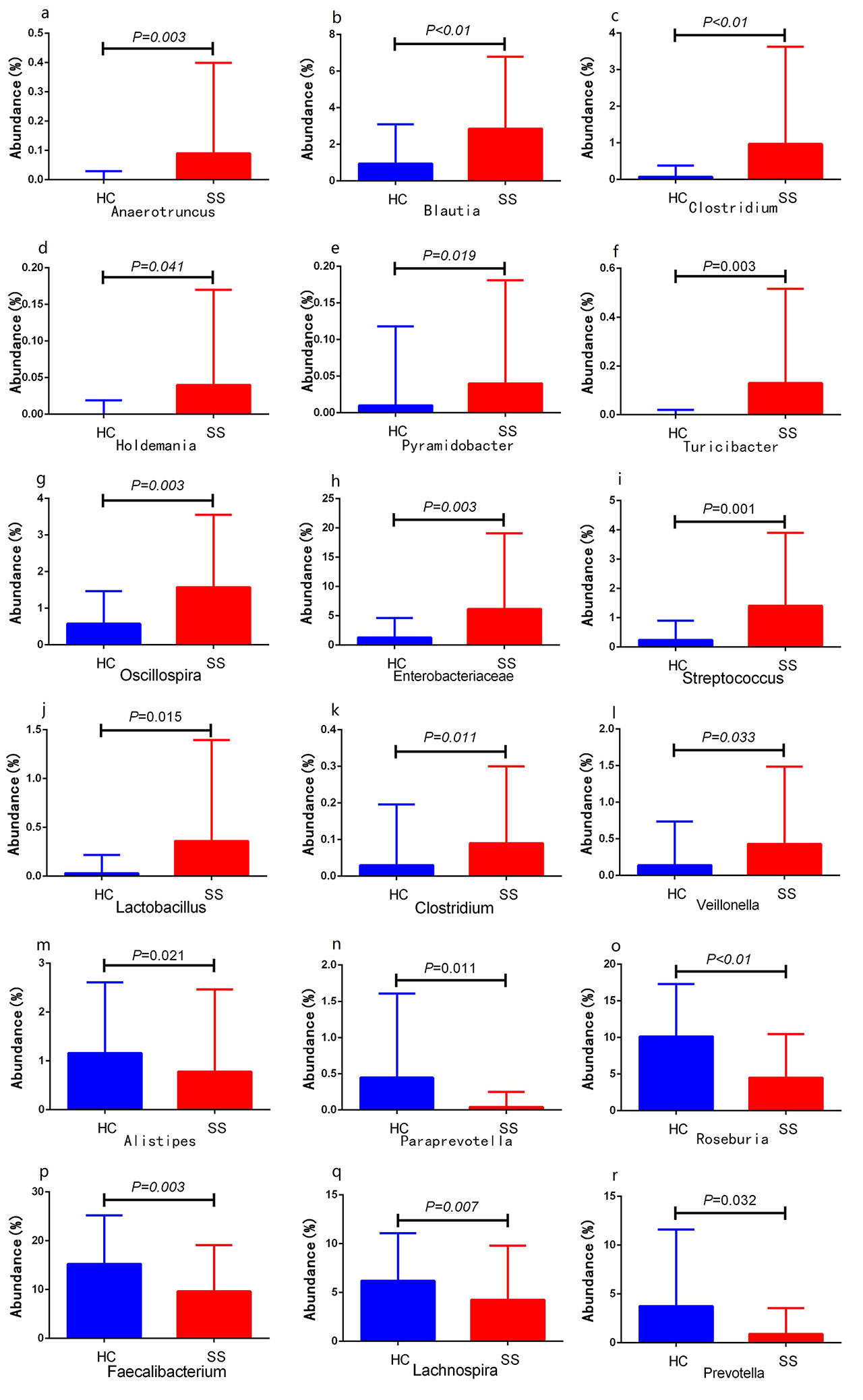Session Information
Session Type: Poster Session (Monday)
Session Time: 9:00AM-11:00AM
Background/Purpose: Sjogren’s syndrome (SS) is characterized by lymphocyte infiltration of exocrine gland, resulting in decreased exocrine function and dry symptoms, affecting the quality of life of patients. Studies have found that intestinal microbial imbalance is associated with sjogren’s syndrome. This study aims to detecte the differences of microbial population distribution in stool samples of healthy individuals and patients with sjogren’s syndrome (SS), and explore the changes of intestinal flora in SS patients.
Methods: The 16s rRNA V3 region in the stool samples of 29 SS patients was qualitatively analyzed by using 16s high-through put sequencing platform, and compared with that of 126 healthy controls (HC).
Results: Patients with SS had an increased feces bacterial flora of bacteria species OTU information (P< 0.01) and the diversity index (Shannon) increased (P< 0.05), though only a slightly difference of Evenness index compared with that of HC (P >0.05). As for intestinal flora abundance patients had more Actinobacteria, Proteobacteria, Synergistetes at phylum level (P< 0.05) and also had a large amounts of Dethiosulfovibrionaceae, Turicibacteraceae, Streptococcaceae, Lactobacillaceae, Enterobacteriaceae at division level (P< 0.05) but a lower proportion of Prevotellaceae, Paraprevotellaceae, Rikenellaceae, Veillonellaceae (P< 0.05). When considered genus level, there were also more percentages in Anaerotruncus, Blautia, Clostridium, Holdemania, Pyramidobacter, Turicibacter, Oscillospira, Enterobacteriaceae, Streptococcus, Lactobacillus, Clostridium, Veillonella (P< 0.05), but smaller proportion of Alistipes, Paraprevotella, Roseburia, Faecalibacterium, Lachnospira, Prevotella (P< 0.05) in SS patients when compared with those of HC.
Conclusion: The diversity and equilibrium of bacterial community in intestinal microecology of SS patients were significantly different from that of normal population.
To cite this abstract in AMA style:
Mao X, Zhang S, Yin X, Zhang M, Wang J, Chang M, Qiu M, Zhang J, Gao C, Li X. Diversity Analysis of Intestinal Flora in Patients with Sjogren’s Syndrome [abstract]. Arthritis Rheumatol. 2019; 71 (suppl 10). https://acrabstracts.org/abstract/diversity-analysis-of-intestinal-flora-in-patients-with-sjogrens-syndrome/. Accessed .« Back to 2019 ACR/ARP Annual Meeting
ACR Meeting Abstracts - https://acrabstracts.org/abstract/diversity-analysis-of-intestinal-flora-in-patients-with-sjogrens-syndrome/



